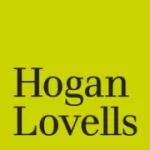As part of the Obama Administration's export control reform initiative, the government of the United States. Government will begin collecting information regarding deemed export compliance from U.S. employers seeking to hire non-U.S. workers in various temporary visa categories. A "deemed export" occurs when technology is released to a foreign national in the United States, and this release is considered an export of the technology to the foreign national's country of residence and, in some instances, to his or her country of birth. Depending on the technology at issue and the foreign national's country of birth or residence, such an export may require a license from the U.S. Department of Commerce under the Export Administration Regulations (EAR), the U.S. Department of State under the International Traffic in Arms Regulations (ITAR) or the Department of Energy for certain nuclear-related information. Notably, the immigration form only asks about EAR and ITAR licensing requirements.
Effective November 23, 2010, employers petitioning for potential workers (beneficiaries) in H-1B (specialty occupation professionals), H-1B1 (free trade specialty occupation professionals from Singapore or Chile), L-1 (intra-company transferees) or O-1A (aliens of extraordinary ability) status will be required to make a certification regarding compliance with applicable export control regulations in connection with the contemplated employment of the foreign national. The petitioning employer will need to assess whether the foreign national will have access to technology or technical data controlled under the EAR or the ITAR and certify that (i) an export license is not required for the release of petitioner's technology to the beneficiary; or (ii) if an export license is required, that the beneficiary will not have access to such technology until petitioner obtains the required license from the U.S. Department of Commerce and/or the U.S. Department of State.
The certifications will be collected using a new Form I-129, petition for nonimmigrant worker. Part 6 of the new Form I-129 will read as follows:
Check Box 1 or Box 2 as appropriate:
With respect to the technology or technical data the petitioner will release or otherwise provide access to the beneficiary, the petitioner certifies that it has reviewed the Export Administration Regulations (EAR) and the International Traffic in Arms Regulations (ITAR) and has determined that:
- A license is not required from either U.S. Department of
Commerce or the U.S. Department of State to release such technology
or technical data to the foreign person; or
- A license is required from the U.S. Department of Commerce and/or the U.S. Department of State to release such technology or technical data to the beneficiary and the petitioner will prevent access to the controlled technology or technical data by the beneficiary until and unless the petitioner has received the required license or other authorization to release it to the beneficiary.
Older versions of the Form I-129 that do not include the new certification requirements will continue to be accepted by the U.S. Citizenship and Immigration Services (USCIS) until December 21, 2010. (In other words, all petitions using previous versions of the Form I-129 must be postmarked or filed on or before December 21.) Effective December 22, 2010, however, employers should ensure they are in a position to provide accurate deemed export compliance certifications to the USCIS.
A draft version of the new Form I-129 has been published and can be viewed on the Office of Management and Budget's web site. However, the revised form and instructions should not be used until officially released by the USCIS on November 23.
Please let us know if you have any questions regarding this new development.
The content of this article is intended to provide a general guide to the subject matter. Specialist advice should be sought about your specific circumstances.

